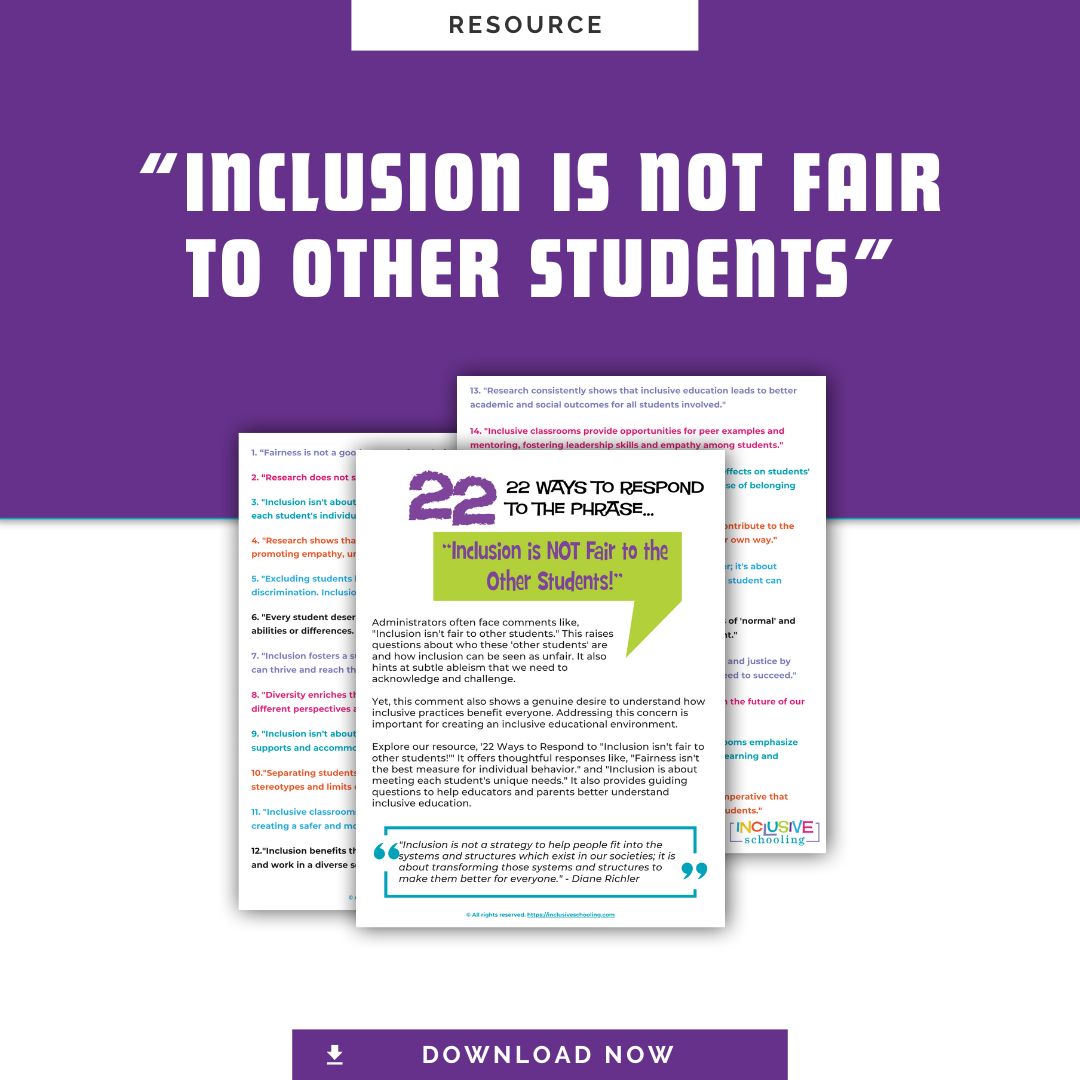The other day, someone posted a comment on our Facebook thread riddled with ableist language. After blocking and reporting the post as hate speech, we decided to reframe this negative experience into a powerful learning opportunity.
First, we reflected on the impact of ableist language and examined where it might even creep into our own speech and writing. Recognizing these instances is the first step towards change.
Second, we crafted a response to the comments, aiming to bring awareness to the harm ableist language causes our students, families, colleagues, and community members. It's essential to name and address these issues head-on.
Here's the link to our FB response https://www.facebook.com/reel/483909784202707
Here's a summary of examples of ableist language from the person's original post. Many were too harmful to repeat.
- “Not at the expense of the learning and education of the other neurotypical students we don’t!”
- “How is a normal child supposed to focus/concentrate/learn? That’s not fair to them!”
- “Separate classrooms and separate schools are absolutely appropriate!”
- “Think of the other children whose education and learning time is being NEGATIVELY AFFECTED by a kid who’s intellectually disabled being in class and distracting them!”
Third, we sought out resources readily available to help eliminate ableist language in education. Here are some of those valuable resources:
- Strategies for Presuming Competence: PDF Download
- Report Writing Dos and Don'ts: Google Doc
- YouTube Video Discussion: Watch Here
Embracing Empathy, Education, and Action
Our journey to eliminate ableist language is about more than just words—it's about fostering a culture of empathy, education, and action. By making complex topics approachable and relatable, we can inspire others to adopt a proactive and positive outlook, especially when facing challenges or resistance.
Reflect, Respond, and Reform are our guiding principles as we navigate the path toward eliminating ableist language in education. Join us on this journey, and let's make a difference, one word at a time.🌟
Want to Be Prepared FOR THE RESISTANCE INCLUSION CHANGES BRING??
- Empowerment: Equips you with empowering responses to common objections, allowing you to advocate for inclusive education confidently.
- Understanding: Fosters a deeper understanding of the principles behind inclusive education by providing clear explanations and follow-up questions.
- Collaboration: Promotes collaboration between educators and parents by offering effective conversation starters and problem-solving strategies for addressing concerns.
- Positive Change: Challenges misconceptions and provides practical solutions.


